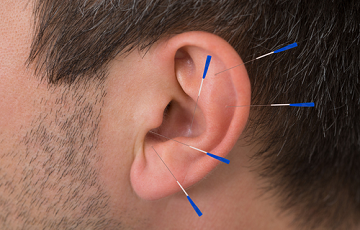Addictions present themselves in a variety of ways. For one person, a glass of wine with dinner is the perfect amount, while another person might not be able to stop until the entire bottle is finished. For some, inhaling tobacco is torturous on the lungs, in contrast to others who find an insatiable pleasure and satisfaction from smoking cigarettes. Fortunately, acupuncture and Chinese medicine is not only able to address the symptoms associated with addictions, but helps mitigate the psychological imbalances that have caused dependence in the first place.

To help promote a full recovery and prevent recidivism (a return to the addictive behavior), the fundamental craving must be rooted out. Addictions indicate that a person’s shen, or spirit, is disturbed, as espoused by the theory of acupuncture and Oriental medicine. It is easy to recognize a person with a balanced shen, because the eyes will shine with vitality, and one can perform well under stress and possess the ability to maintain healthy, loving relationships. The shen resides in the heart and is prone to being harassed by damp heat which addictions usually cause. Acupuncture and Chinese herbs can help
- Relieves muscular tension and relaxes muscles spasms.
- Improves circulation and blood flow to bring fresh oxygen to the affected part
- Promotes overall healing and well-being.
- Increases metabolism and digestion.
- Bring in tranquility and satisfaction
- Strengthens the immune system

Weight gain
Weight loss is just one benefit that often accompanies the benefits of acupuncture and TCM. The idea here is to treat the whole person, to improve the operation of the entire organism. Each person has an individual pattern of issues, so the treatment has to be flexible to tailor the herbal balance and acupuncture approach to what the patient needs.
Smoking and alcohol abuse
Acupuncture as an alternative approach to smoking alcohol cessation has a growing number of converts. In fact, acupuncture is often a court mandated treatment for drug addicts because of its ability to reduce cravings and alleviate withdrawal symptoms such as irritability, anxiety and difficulty concentrating. As one of the root causes, stress was a major factor for many patients in their jobs and lives, but the stress response began to lessen as they continue treatments. One patient said,” I noticed that there was a sense of euphoria after my treatments, much like the feeling of well-being one gets after exercise. The stress was gone, and I was able to concentrate better throughout the day.”
